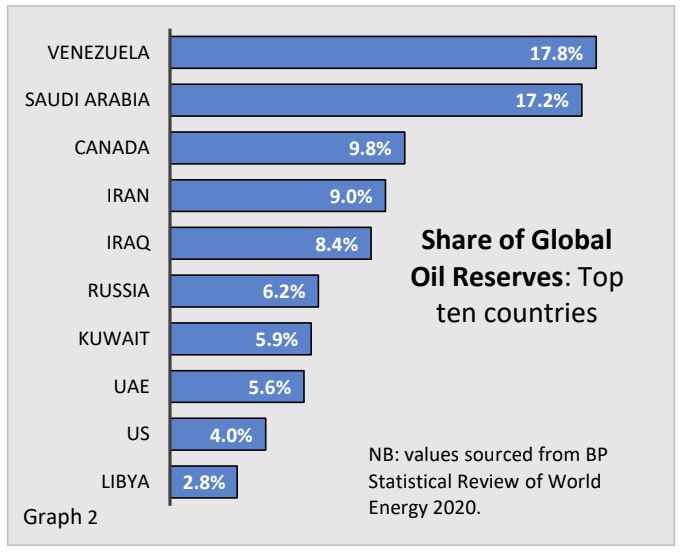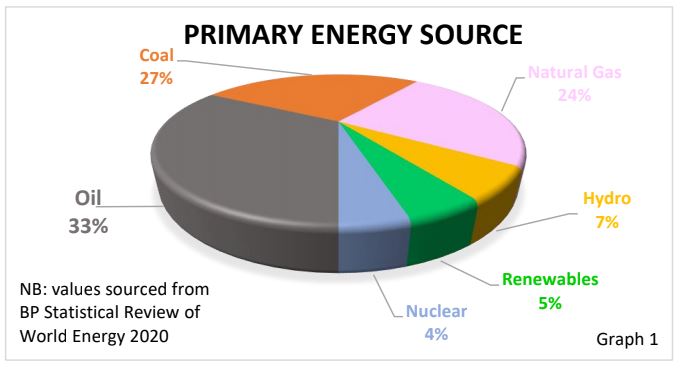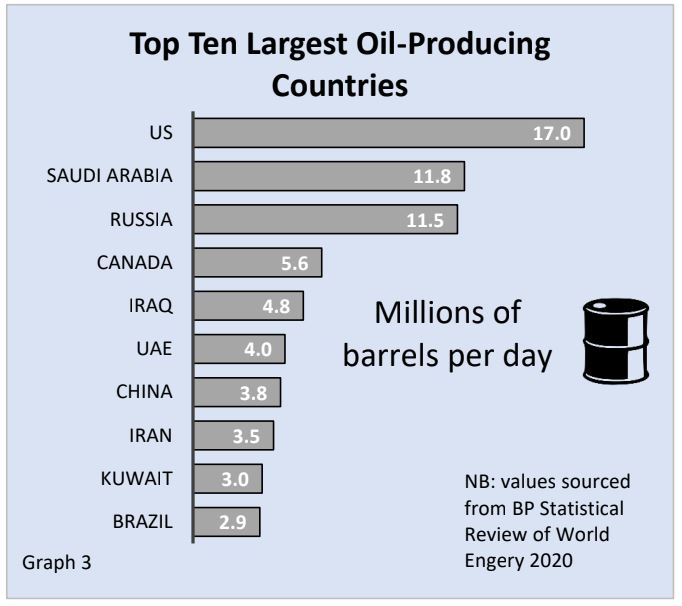TORONTO – Lately, more vehicles appear to be on the roads and there are more planes in the air. What do they have in common, they require fuel to function. The global economy relies on energy to thrive. Considering all sources of energy, oil reigns supreme.
According to the BP Statistical Review of World Energy 2020, oil accounts for nearly one third of the global energy mix. It holds the greatest share of primary energy at 33%, compared to all sources including coal, natural gas, hydro, nuclear and renewable. (see graph 1)
The reasons for its popularity are obvious. Used as fuel for transport, oil gives life to machines and helps power factories. It is used to generate electricity to light homes and as a raw material for fertilizer. Even the production of plastics begins with oil.
As one of the earth’s most valued natural resources, oil is found in reserves all over the world. Hidden between rock layers below the Earth’s surface, global reserves measured more than 1.73 trillion barrels of oil in 2019.
Among the top ten countries with the largest reserves, Canada ranks number three with nearly ten percent of the global share – equivalent to 170 billion barrels. Nearly 97% of the nation’s “black gold” mine is contained within Alberta’s oil sands.
The top leading country which hold the largest share of global reserves is Venezuela at 17.8%. That translates to an equivalent of 304 billion barrels, nearly double that of Canada’s. (see graph 2)
Although these countries top the list with respect to the amount of recoverable oil in certain regions, it does not necessarily mean they are among the top oil-producers.
For instance, the US is the number one producer worldwide, despite holding only 4% of the global reserves. In 2019, the US produced just over 17 million barrels per day (Mbpd). That is roughly three times Canada’s national output of 5.6 Mbpd, (see graph 3).
Globally, in 2019, roughly 95 million barrels of oil were produced every day. In fact, the top five oil-producing countries are responsible for just over half of all global production.
Canada is a big contributor to the oil industry. At an average production rate of 5.6 Mbpd, it would take roughly 83 years to deplete the nation’s oil reserves (of an estimated 170 billion barrels). As technology evolves, recoverable resources in the oil sands are estimated at more than 300 billion barrels.
To put that into perspective, just one barrel of oil can produce enough gasoline to drive a mid-sized car over 450km. It can also produce nearly 70 kilowatt hours of electricity at a power plant generated by residual fuel.
Despite a growing momentum towards “green” energy sources driven by policies to reduce greenhouse gas emissions and concerns about climate change, for now, oil remains a significant resource in the global fuel supply.







